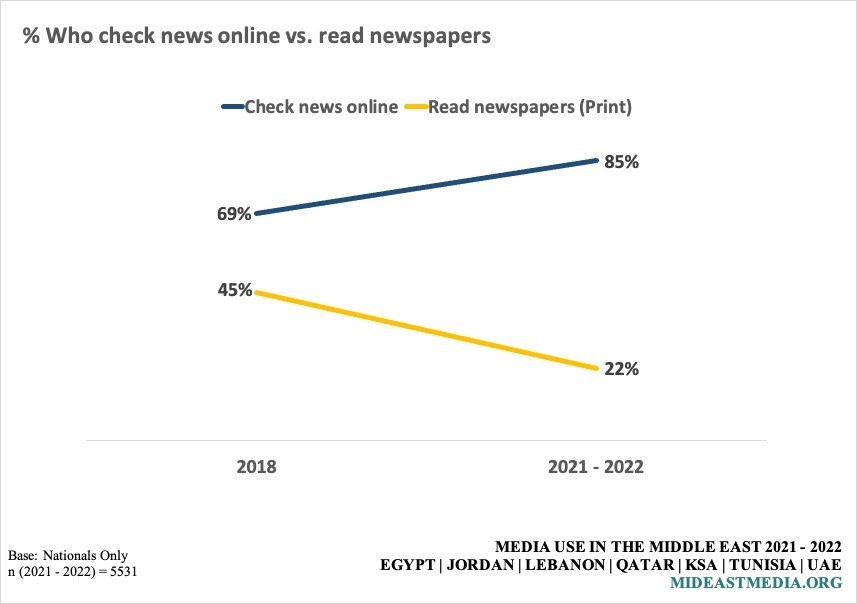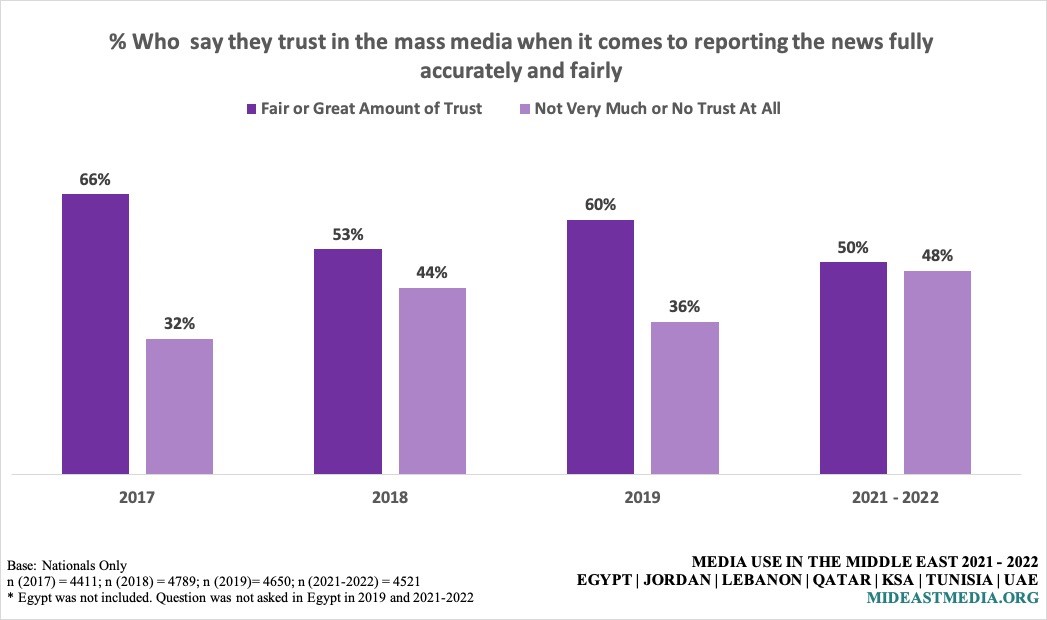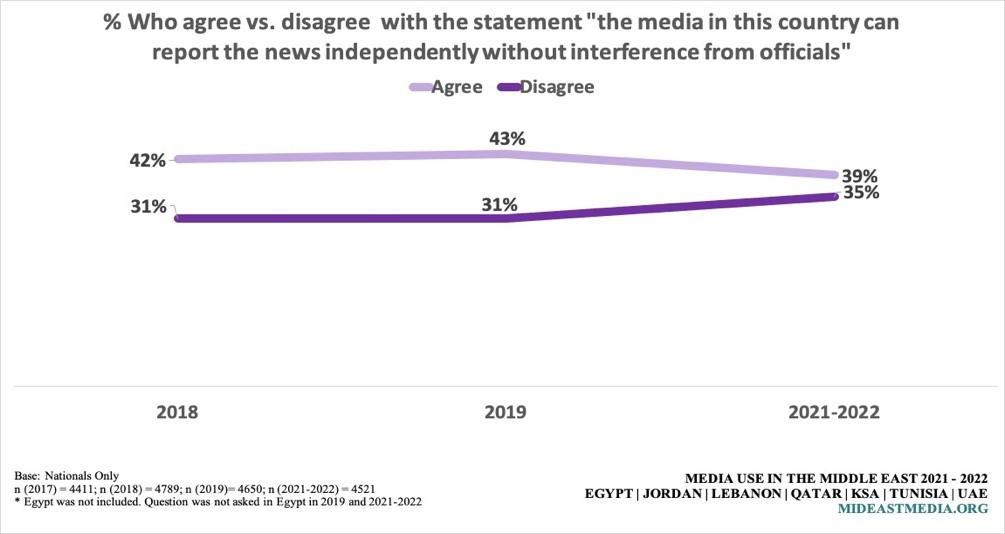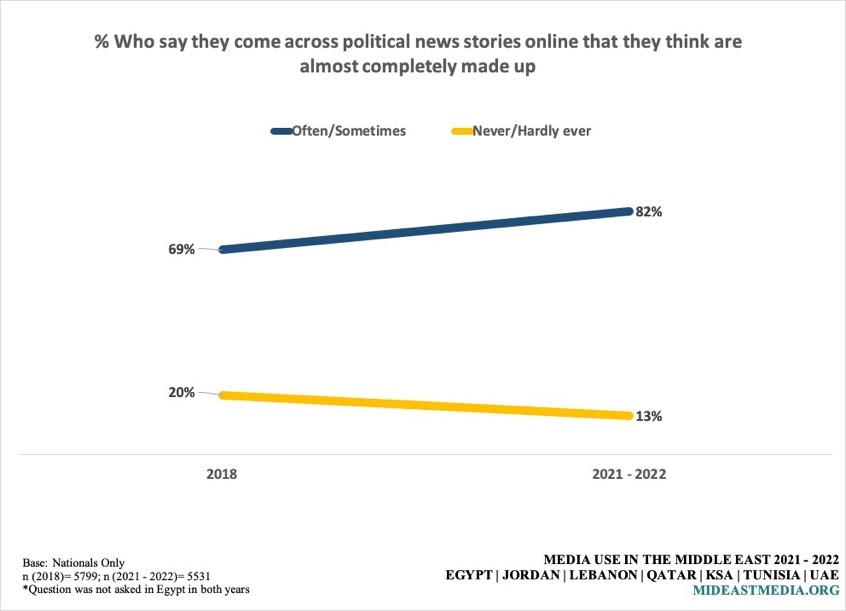Accessing news online generally and on a daily basis have been increasing since 2016, reaching the highest increases in 2021-2022 with 85% of nationals accessing news online and 61% nationals doing so daily.
Figure 28: Checking News Online Vs. Reading Newspapers

Reading printed newspapers continues to drop with the steepest drop between 2018 and 2021-2022 yet (45 % vs. 22%). Countries in the regions like Jordan have banned printed newspapers in what they justified as a precautionary measure at the start of spread of the coronavirus pandemic which has been a big hit to the already declining news consumption habit.
Conversely checking news online has continued to increase in the past years and has boosted even more with the shift to online platforms that has accompanied the spread of the pandemic, leading to the highest percentage of nationals recorded who consume news online 85%.
Interestingly enough, Qatar is the only country that still has over half of its nationals who still read the newspapers.
Figure 29: Trust in Mass Media

Trust in media has seen 2 notable decreases since 2017: one in 2018 and one in 2021-2022 with around half of nationals in both times report having a fair or great trust in media to report news accurately and fairly.
Nationals in the region seem to be conflicted in trusting the media in their country in 2021-2022 to report news accurately and fairly with half nationals saying they have a fair or great amount of trust in media and the other half saying they have not very much or no trust at all in the media.
Majorities of Nationals in the gulf countries and Egypt report a fair or great trust in media. Interestingly however, Tunisia and Lebanon are the only countries that report higher percentages of nationals who have not much or no trust at all in media’s fairness and accuracy.
Figure 30: Attitudes on Media Independence Over the Years

The percentage of nationals who agree that media in their country can report the news independently without interference from officials and the percentage of nationals who disagree with the same statement have always been at close rates since 2018. The gap between the two has narrowed the most in the latest version of the media use study where 39% of nationals in the region agree compared to 35% with the statement nationals who disagree.
Tunisians are the most nationals who report that news media in their country is independent from officials, while Jordanians are the most to disagree that their news media is independent from officials, Saudis are the least to agree with the statement.
Qatar is the only country with equal percentages of nationals agreeing and disagreeing that the media in Qatar is independent of political interference.
Figure 31: Frequency of Coming Across Political Stories that Are Completely Made-up

The percentage of nationals that have reported seeing political news stories that they think are almost entirely made up has increased in 2021-2022 than what it was in 2018. This can be explained on the one hand with what the World Health Organization called the infodemic that has accompanied the Coronavirus pandemic. It can also be an indication for more awareness among nationals of the region of the existence of fake news.
With the exception of Qatar, a great majority of nationals in each country has reported seeing news online that they think are almost entirely made up at least sometimes. In Qatar however, more nationals report hardly or never coming across news stories that they have thought were almost entirely made up. This can be explained as well with the anti-fake news law that the country had imposed at the beginning of the pandemic.